The landmark new report from the Intergovernmental Panel on Climate Change (IPCC) is crystal clear: human action is warming the planet and we're heading for big trouble if carbon emissions are not slashed. As Prof Tim Palmer, at the University of Oxford put it: "The report is further reinforcement that there is an unequivocal risk of dangerous climate change."
Yet before the ink is even dry critics are trying to obscure this stark message behind a mirage: the supposed halt in global warming over the last 15 years. This willful idiocy is based on the fact that air temperatures at the Earth's surface have more or less plateaued since the record hot year in 1998.
What critics choose to ignore is that of all the extra heat being trapped by our greenhouse gas emissions - equivalent to four Hiroshima nuclear bombs every second - just 1% ends up warming the air. By choosing to focus on air temperatures critics are ignoring 99% of the problem.
Are scientists certain that global warming has continued unabated over the last 15 years? Yes. "The best satellite data we have shows that there is still more energy going into the climate system than is going out, because of greenhouse gases in the atmosphere," said Ed Hawkins, at the University of Reading. Another Reading scientist, William Collins, said: "The climate has warmed over the last 10 years, the models are not wrong on the total heat being added."
So where is all the heat going? About 93% goes into the oceans, much of which were largely unmonitored until the 2000s, 3% into land and 3% into melting ice.
Undue focus on the air temperature plateau is cretinous for several more reasons. First, unlike weather, climate is a long term phenomenon and can only truly be assessed over at least 30 years. While the long term warming trend is clear, scientists have long known that air temperatures do not rise smoothly year-on-year in the complex and chaotic climate system and that decade-long ups and downs are part of natural variability.
"The very first climate models built in the 1990s showed this kind of variability, so we have known about this for a long time," said Hawkins. John Shepherd, at the UK National Oceanography Centre, said: "We should prepare for a bumpy ride, as that is what we have had in the past and that is what we will have in the future."
Second, if air temperatures have not risen quickly in the last 15 years, other clear indicators of climate change have worsened more quickly than expected, including the rapid loss of Arctic ice and sea level rise. Critics cannot cherry pick their indicators and remain credible.
Thirdly, many scientists anticipated the so-called "pause": it is not some shock undermining the whole edifice of climate science. A natural and periodic ocean current phenomenon called El Niño peaked in 1998, pumping heat into the air, but has been increasingly in abeyance since. Furthermore, the solar cycle peaked in 2002 and the reached its minimum in 2009, meaning a little less heat beaming down to Earth, and a number of volcanic eruptions have blocked out some sunlight in that time.
So the pause in air temperatures can be well explained and, while work remains to be done determining the exact relative importance of ocean heating, El Niño, solar cycles and volcanoes, we are still only talking about 1% of global warming. Prof David Mackay, the UK's government's chief energy and climate change adviser, is clear: "It is not a terrible mystery."
Another mirage being conjured up is the debate about climate "sensitivity", i.e. how much air temperatures rise for a given rise in carbon dioxide in the atmosphere.
Some scientists have suggested the climate is less sensitive than thought and there is a genuine debate about this. But the differences being discussed are essentially irrelevant. Thomas Stocker, one to the two scientists who oversaw the IPCC report, gave this criticism short shrift: The slightly lower sensitivity being discussed would give humanity only a "few years" longer to tackle climate change, he said: "It is not really a relevant point when it comes to the relevant reductions in CO2 emissions needed to keep temperature rise under 2C."
The estimates of climate sensitivity come out of the complex computers models used to project warming into the future. The IPCC states that the models, built on the basic laws of physics, now accurately represent a great many of the important climate phenomena. "If you are saying the models are flawed, you are saying the laws of physics are flawed," said Tim Palmer, at the University of Oxford.
Be in no doubt, climate change is real and dangerous. In fact, the new IPCC report, written in consensus by the world's climate experts and signed off in unison by the world's governments, may well be too timid. That is because it is a scientific document in which the confidence in climate knowledge and predictions are assessed. It is not a risk assessment.
"If there is a 10% chance of an aircraft crashing, you would not board it, but the IPCC classes that as very unlikely," said Ted Shepherd, at the University of Reading. The IPPC concludes there is a 50-50 chance that global temperatures will exceed 4C this century if carbon emissions are not curbed. Such a rise would have catastrophic consequences. So if you are still feeling confused about all this complex science, it all boils down to this: how lucky do you feel?
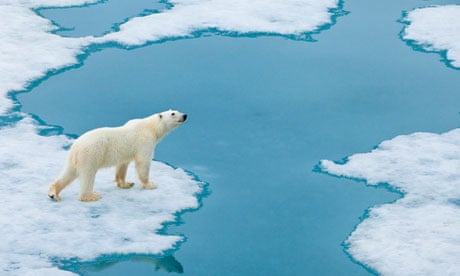
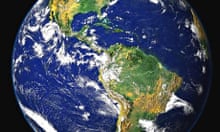


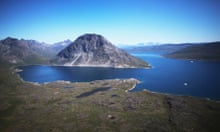



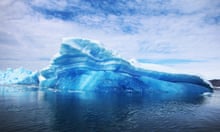

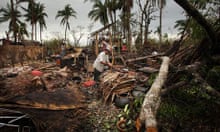
Comments (…)
Sign in or create your Guardian account to join the discussion